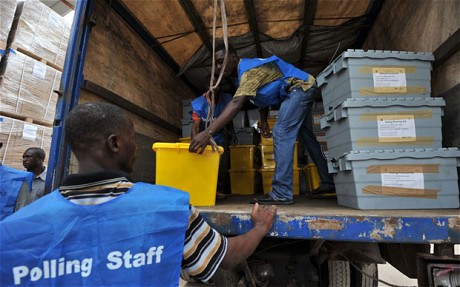A tarnished victory, objections and appeals, a power sharing deal

Last couple of days, remembered us that sometimes things never change!
In Zimbabwe, Emmerson Mnangagwa had won the presidential race by a slim margin. This represents a a bitter pill to swallow for the opposition, despite the hope of change for a new beginning, after 37 years of party rule under Mugabe.
Official results show he took 50.8 percent of the vote to Mr Chamisa's 44.3 percent. The 21 other candidates took up the remainder. Chamisa, the Zimbabwe's opposition leader has said President Emmerson Mnangagwa's election victory is a "coup against (the people's) will". He also enhanced he had evidence that ballot boxes were being transported in open trucks allowing them to be tampered with. He questioned the discrepancies in the numbers of votes tallied in the parliamentary elections compared with the presidential poll. Both elections took place at the same time. Mr Chamisa finally regarded that his election agent was not allowed to verify the results on Thursday.
Election observers condemned the way Mr Mnangagwa's ZANU-PF party abused its power to sway the vote. Violence followed. But many Western countries may overlook the political gamesmanship and violence if Mr Mnangagwa is willing to reform the economy. We sincerely doubt that real progress will follow suit. Mnangagwa was almost always living in the shadow of Mugabe.
Nevertheless, his biggest challenge will be the recovery of the country's economy. For this to be feasible, it would be important that the election winner and the main opposition group unite and form some kind of coalition.
In the same vein, Mali opposition leader - Soumaïla Cissé challenges presidential election results in the Constitutional Court. Soumaïla Cissé filed twenty appeals in the country's Constitutional Court, denouncing various irregularities, including "ballot-box filling". He also denounces "partiality" of the judges.
The Constitutional Court, is composed of nine judges. In the miidle of the week it will officially announce the results of the first round of elections so that it can start the campaign for the second round, scheduled for August 12, with Ibrahim Boubacar Keita appointed as a favourite. Presently, current information shows that Soumaïla Cissé won 17.8% of the vote, against 41.42% of Ibrahim Boubacar Keïta,
In South Sudan rivals sign final power-sharing deal. The government and rebels of South Sudan signed a power-sharing agreement in Khartoum yesterday to end a deadly civil war ravaging the world's youngest country.
Under this agreement, Riek Machar will join a government of national unity and become first vice president.
Once a final peace agreement is signed, the belligerents will have three months to form a transitional government, which will be in power in the country for a period of 36 months.
Will this agreement survive and be fully respected by both parties?